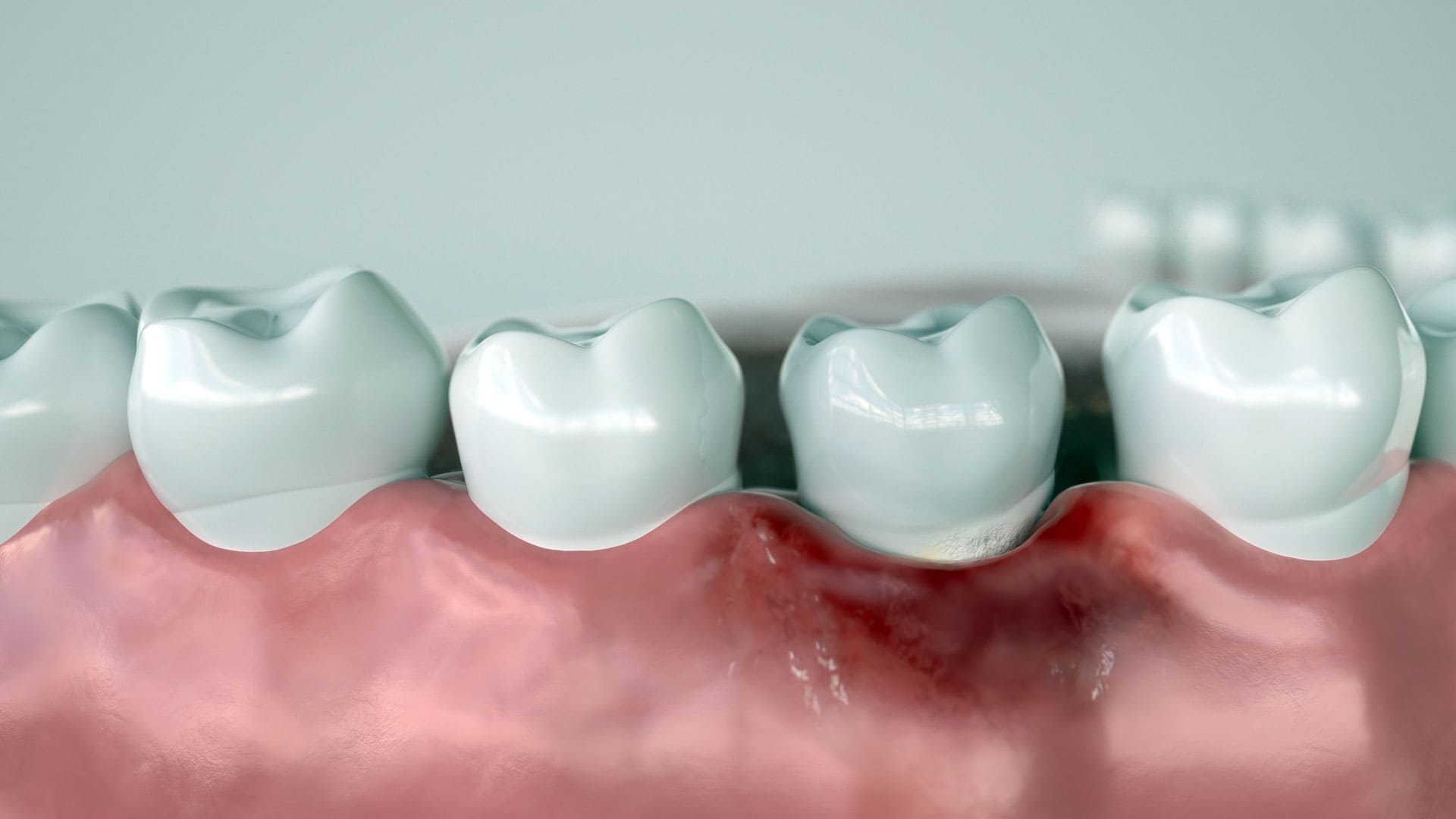
Periodontology
Gingivitis

Periodontitis
When gingivitis is unable to be controlled the inflammation progresses to periodontitis, a common chronic disease that affects at least 25% of the adult population. Periodontitis is caused by dental plaque that contains destructive bacteria that result in the loss of the supporting structures around the teeth. This causes the formation of ‘pockets’ around the teeth and/or recession of the gums. As is the case with gingivitis, inadequate oral hygiene is a risk factor for periodontitis, as are various systemic diseases (eg diabetes) and harmful habits (eg smoking). Genetic risks can cause developing periodontitis, and patients with a family history of periodontitis should go routine visit.
Although periodontitis is not usually painful, common signs of the disease include gum recession (ie. ‘getting long in the tooth)’ and mobility (loosening) of the teeth. If untreated, periodontitis may result in the loss of teeth. With appropriate professional care the condition can usually be stabilised.


